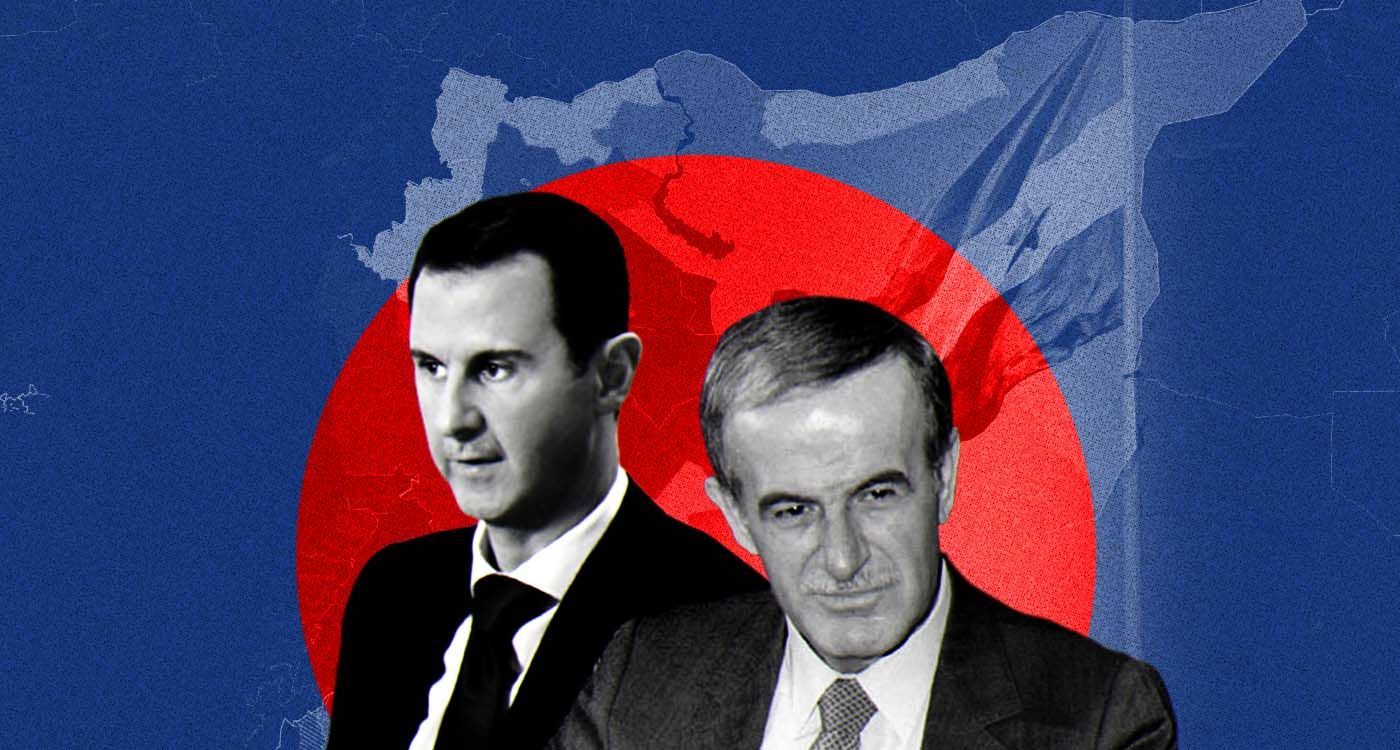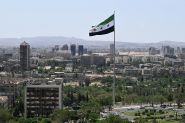- Home
- Middle East
- The Assad Dynasty in Syria: Autocratic Legacy, Repression and Challenges

©This is Beirut
Syria has been under the rule of the Assad dynasty for more than half a century. Hafez al-Assad, the founder, seized power in 1970, followed by his son Bashar, who took control in 2000 after his father's death.
Belonging to the Alawite minority, the Assads established an autocratic regime over a predominantly Sunni population, portraying themselves as a secular national authority. While their rule was officially described as democratic and socialist, it has been marked by the violent suppression of Sunni dissent, whether conservative or radical.
Hafez, the father, frequently wielded violence as a tool of control, most notably in Hama in 1982, where an estimated 20,000 to 30,000 people were killed. The city, now under rebel control after the expulsion of Syrian armed forces, still bears the marks of the brutal crackdown led by Hafez al-Assad.
He also exercised ruthless dominance over Lebanon during Syria's occupation from 1978 to 2005.
Since 2011, Bashar has been embroiled in the Syrian civil war, which has resulted in over half a million deaths, the displacement of 11 million people and the widespread destruction of Syria’s social and economic infrastructure.
Rise and Evolution: Firmness, Cruelty and Pragmatism
The Assad dynasty — father and son — consolidated their rule with the backing of their Alawite community, the military, security forces, intelligence agencies (notoriously known as the moukhabarat) and the powerful Baath Party network. Their regime also enjoyed sustained support from the USSR, later Russia, and more recently, Iran’s clerical leadership in Tehran.
Syria gained independence from France in 1946 but soon became a battleground for multiple coups and political upheavals. Hafez al-Assad managed to maintain his hold to power through a calculated mix of firmness, cunning, composure and brutality — all underpinned by pragmatism and, paradoxically, a notable degree of flexibility.
During Hafez al-Assad's youth, the Alawite minority to which he belonged was denounced as a heretical and socially inferior community, even in comparison to Christians and Jews. His father, a senior official in the administration of the French Mandate, used his position to send one of his 11 sons — Hafez — to school.
Hafez later joined the Baath Party, a non-sectarian, socialist and Pan-Arab movement founded in 1947. After enlisting in the military, he leveraged his connections within the armed forces and the party to propel his rapid rise to power.
When Bashar, the son, assumed power, foreign diplomats briefly believed there might be a shift in style. The young heir was not initially meant to "rule" — that role was reserved for his older brother, Bassel. However, Bassel, who had a reputation as strong as their father’s, died in a car accident in Damascus in 1994.
Bashar, the younger son, had grown up in the comfort of the People’s Palace, attended elite schools and worked as an ophthalmologist in London. After his brother’s death, he was compelled to return to the "family business," taking on military and political roles. Hafez had carefully prepared his son’s rise to the presidency by eliminating potential successors, including his own brother Rifaat al-Assad, General Hikmat Chehabi, Vice President Abdel Halim Khaddam and other Sunni officers.
In 1998, Bashar took charge of the Lebanese file, replacing Khaddam and inserting himself into the web of Lebanese politics, which had been under Syrian control for more than 20 years. He ultimately came to power in 2000, following his father’s death.
Bashar the Reformer or the Tyrant?
Despite his lack of experience, Bashar managed to stay in power for nearly 25 years, more than 11 of which were marked by uprisings, riots and wars. He began his reign by attempting to introduce social reforms to appease the Sunni population, which earned him favorable opinions in Western countries. This was also likely the result of a media campaign targeting Western outlets, aimed at promoting his public image as a reformer.
He further bolstered his image through his marriage to Asma, the daughter of a Syrian-British businessman and a Sunni, which quickly attracted media attention. However, this did not prevent several rebellions from emerging (many more than during his father’s time), forcing him to resort, without hesitation, to repression and brutal force. This was likely a result of his inexperience, leading to a palpable sense of insecurity. Nevertheless, he benefitted from his father's security apparatus: the Alawites, the security forces, the military and, of course, the support of Russia and Iran.
Yet, when insurgents launched a surprise assault on northern Syria on November 27, they encountered a regime in turmoil. Hezbollah, reeling from a significant setback in Lebanon, could no longer bolster the government. Similarly, Iran found itself incapacitated, having weathered Israeli strikes targeting its military installations in central Syria. Although Arab nations appeared inclined to reintegrate Bashar into their ranks and Russia held the belief that it could persuade Donald Trump to pull back US troops from eastern Syria, the collapse appeared unavoidable.
Years of corruption and inflation had devastated the economy, and the military was demoralized. The frontlines that had defined the 2020 status quo, established through a Russian-Turkish agreement, faltered. Bashar al-Assad had ignored Erdogan's calls to mend ties between the two countries and, crucially, to discuss the repatriation of Syrian refugees residing in Turkey, leading, among other reasons, to this breakdown.
Read more




Comments